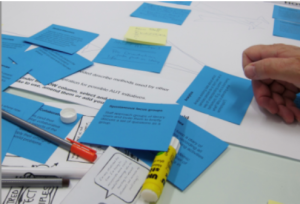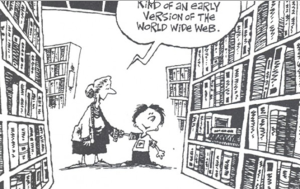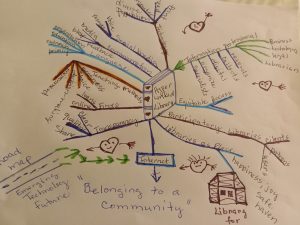How do the six concepts’ foundation aspects reflect upon the diversity, transparency, equity, radical trust, libraries, fines, and participation that can inform the practice of information professionals?
1). Transparency: The first concept is for information professionals can prioritize transparency by ensuring that their processes, policies, and decision-making are open and accessible to all. We can be involved with open communication with library services, procedures, and information resources that can make it easy to understand by using feedback and positive suggestions.

(directphoto, 2024).
2). The Equitable Access:
The second concept is equitable access to work with information professionals with resources that relate to the needs of diverse populations. This may involve removing language barriers, physical accessibility challenges, or digital divides. Also, outreach programs, that create multilingual resources to collaborate with our local community organizations for underserved populations, especially the homeless people.

This Photo by Unknown Author is licensed under CC BY-SA
3). Participatory Libraries:
The third concept is Participatory Libraries is to embrace participatory approaches by involving library users and the community in the decision-making process. This can entail seeking input on library services, involving users in program planning, and actively engaging with our community to ensure their voices are heard and their needs are met.
 Created by Penny, 2013
Created by Penny, 2013
4). Library as Place:
The fourth concept is information professionals can view the library as more than just a reading book, but also as a communal space that fosters diversity, inclusion, and equity. This can involve creating welcoming physical environments, providing a warm and safe space for a special dialogue with good discussions, and offering programming that reflects the interests and needs of our community.

5). Eliminating Fines:
Avoid the fines and penalties that can affect our communities with their access to information. Librarians can advocate for eliminating fines or implementing alternative approaches that promote access and reduce barriers, such as pardon programs, adjusting loan periods, or focusing on education with outreach programs.

6). Radical Trust:
Librarians can build trust by actively working to establish trustworthy relationships with users and the community. Information professionals are involved with privacy and confidentiality, centering their needs and practices by collaboration and empowerment with online communities, and platforms by organizations to cultivate relationships with online searching that provide feedback and comments for the interest in our communities.

Overall, the six concepts are the practice of information professionals that help create libraries that are truly accessible, inclusive, and respond to their information users, and a sense of belonging to their community.
Cherish the memories of the library filled with knowledge, happiness, and joy.

This Photo by Unknown Author is licensed under CC BY
Dogs love to read too! Serious thinking!

This Photo by Unknown Author is licensed under CC BY-NC-ND
“Oh wow, look at all the books!”
“Kind of an early version of the World Wide Web!”

The mind map of the Hyperlinked Library
Buzan, T. (1993). The Mind Map Book:: How to use radiant thinking to maximize your brain’s untapped potential. Google Books. https://books.google.com/books/about/The_Mind_Map_Book.html?id=BKuXQgAACAAJ
Transparency is the word magnifying glass, sincerity, openness, and clarity. Depositphotos. (2024). https://depositphotos.com/photo/transparency-word-magnifying-glass-sincerity-openness-clarity-39072457.html
Penny. (2013, October 23). User experience and participatory design in libraries. Facilitating design: strategy, research & methods to support participation. https://www.smallfire.co.nz/2013/10/23/user-experience-and-participatory-design-in-libraries/
Leave a Reply